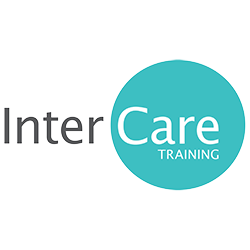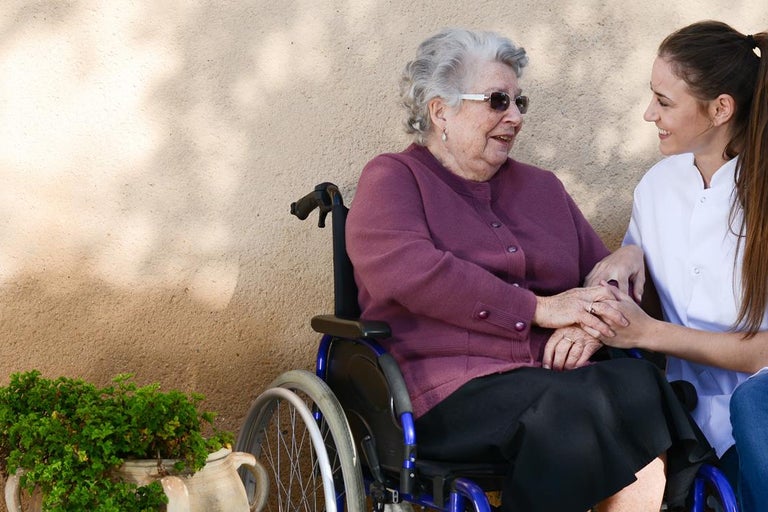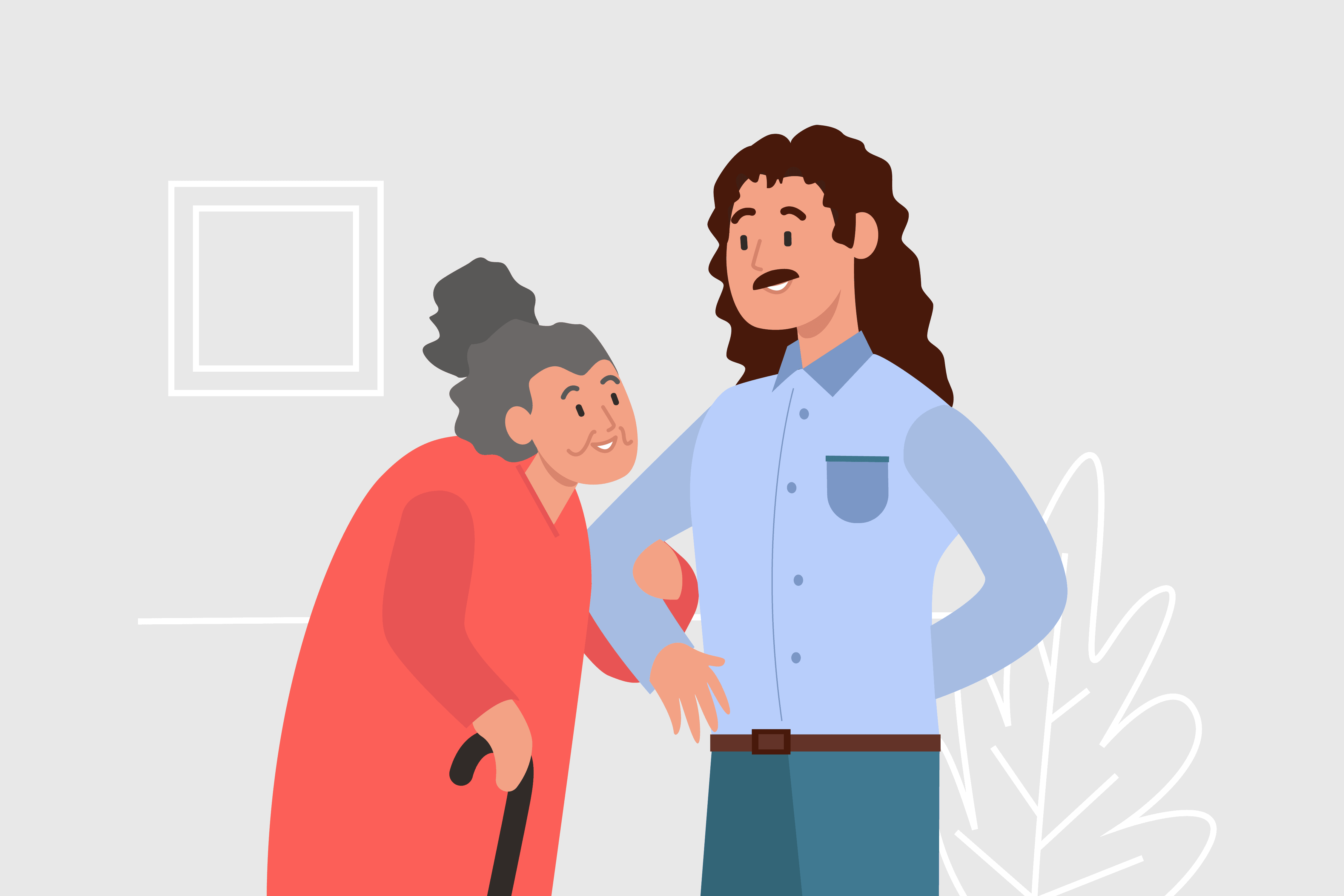Support worker job description
Let’s get real. Job information online can often be overly optimistic — conveniently glossing over the raw bits. But when you’re making decisions about your future, you need all the facts.
That’s why we anonymously surveyed support workers about their job, with hopes of getting an honest insight into what it’s really like.
While we did our best to ensure respondents were Australians and verified their job titles with proof of employment, we can’t guarantee complete accuracy — or that your experiences in the field will reflect theirs. So, we suggest that you take these insights as a guide only and try to talk to people in the field before making an important decision.
Tasks and responsibilities for a support worker
Support workers provide practical and emotional assistance to individuals and families in a holistic way to promote independence and well-being.
The role can vary depending on who you work for or the people you assist, and every day can look different from the last.
A support worker job description can include:
- Providing personal care support like showering and dressing
- Providing emotional support and friendship to clients
- Assisting clients with various tasks and activities in the home or the community
- Monitoring and reporting changes in your clients physical or mental health
- Assisting in household tasks, including ensuring safety and cleanliness
- Undertaking case management
How to become a support worker
-
Study
Completing a support work course like a Certificate III in Individual Support (CHC33015), provides you with the skillset you need for a job in support work. It also equips you with practical experience and the confidence to hit the ground running when you get your first job.
-
Traineeship
Traineeships and apprenticeships are excellent ways of earning while you learn. Traineeships allow you to start a job with no experience, train on the job and complete the right qualification to become an accredited support worker. All the information you need on starting an apprenticeship or traineeship can be found through the Australian Apprenticeships Government website or the The Australian Apprenticeships Pathways website.
-
Volunteer
Volunteering with a local community services provider, an aged care facility, or the disability sector can give you valuable insight into a job in support work. It may even result in job opportunities.
-
Immunisations
The majority of care workers must be up to date with their covid-19 vaccinations to ensure they’re following safe work practices.
-
Police check and Working with Children Check
A job in support work generally requires a police check and Working with Children Check. In most cases, these are straightforward and can be completed entirely online.
Pathway options
A job in support work is gratifying, with opportunities to move into more senior positions or other jobs in the industry. Although a formal qualification is not a requirement, support work courses give you the fundamental knowledge and skills that help to excel in the field.
Possible pathways could be:
Junior
-
Support worker
Most common qualification: Certificate III in Individual Support (CHC33015)
-
Personal carer
Most common qualification: Certificate III in Individual Support (CHC33015)
-
Home care assistance
Most common qualification: Certificate III in Individual Support (CHC33015)
-
Residential care worker
Most common qualification: Certificate III in Individual Support (Ageing) (CHC33015)
-
Aboriginal health worker (aged and disability care)
Most common qualification: Certificate III in Aboriginal and/or Torres Strait Islander Primary Health Care (HLT30113)
Mid
-
Disability services manager
Most common qualification: Advanced Diploma of Community Sector Management (CHC62015)
-
Lifestyle coordinator
Most common qualification: Certificate IV in Disability (CHC43115)
-
Aged care activity worker
Most common qualification: Certificate IV in Ageing Support (CHC43015)
-
Aged care nurse
Most common qualification: Diploma of Nursing (HLT54121)
Senior
-
Senior aboriginal community care worker
Most common qualification: Certificate IV in Aboriginal and/or Torres Strait Islander Primary Health Care (HLT40113)
-
Care Manager
Most common qualification: Advanced Diploma of Community Sector Management (CHC62015)
Explore related qualifications
Certificate III in Individual Support
This support worker course equips you with the skills and knowledge to work as a carer in community care or residential care settings. At this level, you can start working by following individualised plans and offering support services to people who may require it due to ageing, disability, or injury.
Many Registered Training Organisations (RTO) and TAFEs offer Certificate III in Individual Support. The skills acquired in this course are accredited for and allow opportunities for jobs within the NDIS (National Disability Insurance Scheme) as a disability support worker.
This qualification requires you to complete a 120-hour work placement face-to-face, which gives you valuable experience in the workplace under the supervision of senior professionals.
The average duration for this course is 35 weeks full-time but can be undertaken part-time or as an Australian Apprenticeship. Flexible learning options are available, and many providers offer online learning.
Payment plans are available for tuition costs, and scholarships and fee concessions may be available to eligible learners.
You can find out more about your entry requirements, core units, eligibility and course fees when you enquire.
5 providers offer this course





Related subjects
The healthcare and support industry is vast, and within it are job roles of all shapes and sizes. These roles require empathetic and enthusiastic team players, and organisations in these fields are singing out for newcomers all the time.
Some other subjects to explore:
Related articles
Do you feel like a role as a support worker might be perfect for you? If so, dive into a massive catalogue of resources and industry insights to help you get your new rewarding career underway.
Reviews
Reviews are from Australian workers with this job title or a very closely related one.
Is this your job title?
Share your thoughts and help people decide if this job is right for them.
- All
- Positive
- Negative
Gresham
Sep 07 2021Potentially violent behaviour is very challenging but helping people in need makes it worth it.
What are the best parts of the job?
I really love helping people in need. There is never a dull moment in support work, and there is so much diversity in the role.
What's the most challenging part?
Sometimes clients can abuse drugs and become violent.
Gabrielle
Sep 08 2021Love watching clients grow and develop new skills helping with their independence.
What are the best parts of the job?
Supporting intellectually disabled people is always rewarding as you see them grow and develop many skills.
What's the most challenging part?
Dealing with behaviours of concern, like poor treatment from family members, for example, can be tough to navigate.
Victoria
Sep 08 2021The job itself is very rewarding, but the pay and lack of recognition are downsides.
What are the best parts of the job?
Support work is such a rewarding career. Connecting with children, their families and making a positive impact in their lives is very enjoyable. But you do need passion for the industry to be successful. Being able to make a difference really fills my cup.
What's the most challenging part?
There can be high expectations and responsibility, and low reward in terms of finances and community recognition. Some clients might treat you poorly, but these are few and far between for me.






































